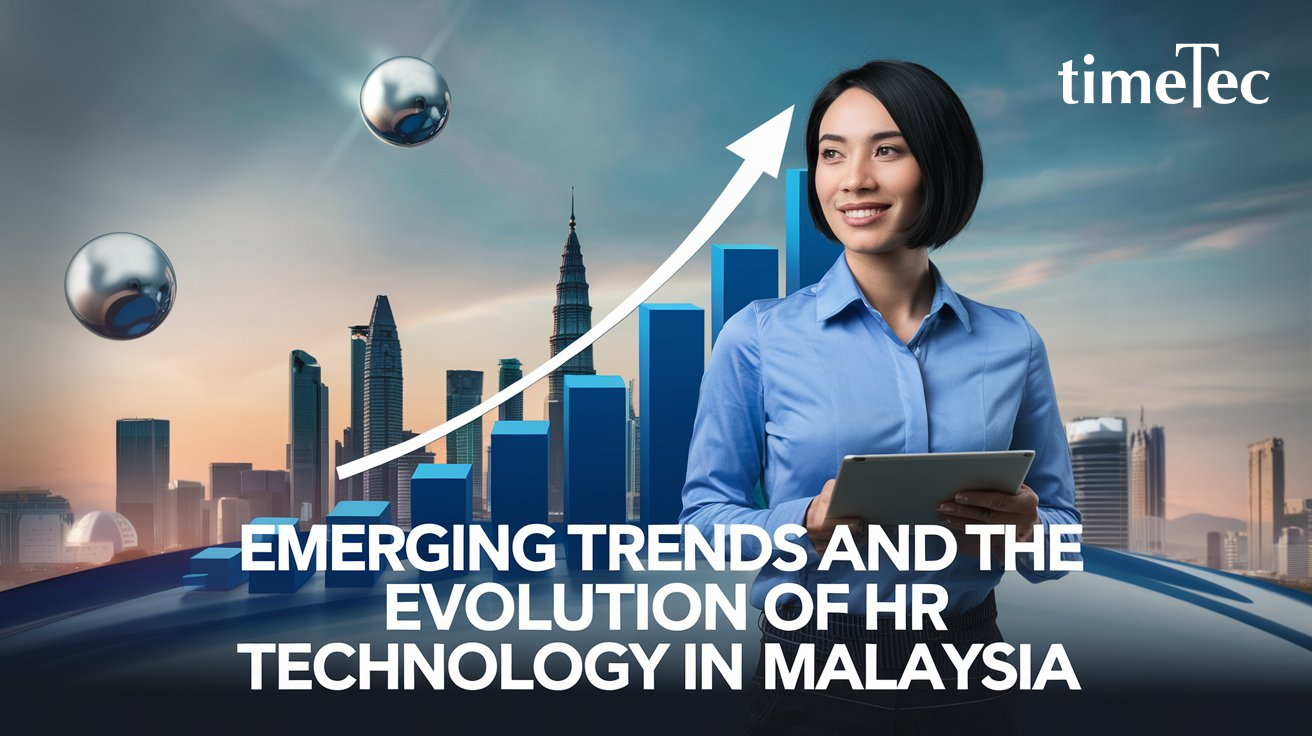The world of Human Resources (HR) is undergoing a remarkable transformation, driven by the evolution of HR technology and rapid advancements in digital tools. As businesses strive to remain competitive in an ever-evolving landscape, staying ahead of HR technology trends is no longer optional—it’s essential. In this article, we’ll explore the future trends shaping the evolution of HR technology, with a particular focus on Malaysia, a country at the forefront of embracing these changes.
Table of Contents
- The Future of Work: How HRMS is Shaping Malaysian Workplaces
- Comparing Past and Present HR Tasks
- The Impact of Artificial Intelligence on HRMS
- Cloud-Based HRMS: Benefits and Considerations
- Top 5 HR Trends
- Challenges in Adopting New HR Technologies
- The Role of HR Professionals in Navigating Future Trends
- Embracing the Future of HR Technology
The Future of Work: How HRMS is Shaping Malaysian Workplaces
Malaysia is experiencing a significant shift in how HR processes are managed, driven by innovative technology. Digital transformation has become central to HR practices, with automation tools growing increasingly prevalent. These tools simplify tasks like payroll processing, leave management, and employee onboarding, reducing manual errors while enhancing efficiency.
Moreover, a noticeable shift towards employee-centric platforms is taking place. These platforms prioritize the user experience, offering personalized services that cater to individual employee needs and preferences. As a result, satisfaction and retention rates improve significantly.
Without a doubt, Human Resource Management Systems (HRMS) are transforming how businesses in Malaysia operate. By integrating HRMS into daily operations, companies can now automate repetitive tasks, boost data accuracy, and ensure compliance with local regulations. This not only saves time but also empowers HR professionals to focus on strategic initiatives that foster business growth.
Comparing Past and Present HR Tasks
Previously, HR tasks were manual and time-consuming. HR professionals spent countless hours on payroll processing, leave management, and record-keeping. These tasks were often prone to errors and demanded significant effort to maintain accuracy. Today, HRMS has streamlined and automated these processes, reducing the workload on HR teams. Consequently, they can now focus on more strategic, value-adding activities.
One of the major advantages of HRMS is its ability to boost employee engagement. With self-service portals, employees can easily access their personal information, request leave, and update their details. This autonomy fosters a greater sense of empowerment and involvement in the organization.
The Impact of Artificial Intelligence on HRMS
Artificial Intelligence (AI) is playing a pivotal role in HRMS, drastically changing how businesses manage their workforce. AI-driven recruitment processes are increasingly common, as algorithms screen resumes, assess candidates’ skills, and even predict cultural fit with greater accuracy and speed.
Additionally, predictive analytics are enhancing workforce management. By analyzing historical data, AI forecasts future workforce needs, allowing businesses to plan for growth and identify potential issues early. In performance evaluations, AI is providing unbiased insights, helping managers pinpoint areas for improvement.
Cloud-Based HRMS: Benefits and Considerations
Cloud-based HRMS solutions are gaining popularity in Malaysia due to the numerous advantages they offer over traditional on-premise systems. These solutions provide businesses with the flexibility to scale their HR processes as they grow. More importantly, cloud-based systems offer remote access, a feature that has become essential in today’s remote and hybrid work environments.

However, businesses in Malaysia must consider several key factors when adopting cloud-based HRMS. Security is a major concern, especially as sensitive employee data is stored off-site. Therefore, companies need to ensure their chosen HRMS provider complies with local data protection laws and implements robust security measures to safeguard this information.
Top 5 HR Trends
1. Remote Work and Hybrid Models
The pandemic has accelerated the adoption of remote work, and many companies are now exploring hybrid models that combine the best of both worlds.
2. Focus on Employee Well-being:
Mental health and overall well-being are becoming central to HR strategies, with businesses implementing wellness programs and offering flexible work arrangements.
3. Diversity, Equity, and Inclusion (DEI) Initiatives
There is a growing emphasis on creating inclusive workplaces where diversity is celebrated, and all employees feel valued.
4. Upskilling and Reskilling Strategies
As technology evolves, the need for continuous learning is critical. Companies are investing in training programs to upskill and reskill their workforce to stay competitive.
5. Data-driven Decision-making in HR
HR departments are increasingly relying on data analytics to inform their decisions, from recruitment to employee retention and performance management.
Challenges in Adopting New HR Technologies
While the benefits of HR technology are clear, adopting these tools comes with its challenges. One of the main obstacles is resistance to change. Some employees and managers hesitate to embrace new tools and processes. Additionally, the costs associated with technology upgrades can be a significant barrier, particularly for small and medium-sized enterprises.
Another critical challenge is data privacy. With the growing amount of sensitive information stored digitally, businesses must prioritize data security. Ensuring compliance with both local and international regulations is essential to safeguard this data and maintain trust with employees.
The Role of HR Professionals in Navigating Future Trends
As HR technology continues to evolve, the role of HR professionals is becoming increasingly strategic. Continuous learning and professional development are crucial in enabling HR teams to stay on top of emerging trends and implement the latest tools effectively. HR professionals must also act as key drivers of organizational change, fostering a culture that embraces the evolution of HR technology and innovation.
To ensure the successful adoption of new HR technologies, HR teams must engage in strategic planning. They need to assess the unique needs of their organization, select the appropriate tools, and ensure that these tools are integrated seamlessly into existing processes as part of the evolution of HR technology.

Embracing the Future of HR Technology
The future of HR technology holds both exciting opportunities and challenges. Businesses in Malaysia and around the world must navigate this rapidly evolving landscape, embracing the latest HR trends and technologies to remain competitive. By staying informed and taking proactive steps, HR professionals can ensure their organizations are well-prepared to thrive in the future of work.
If you’re looking for a comprehensive HRMS solution to meet your business needs, consider TimeTec, your all-in-one platform for streamlining HR processes and staying ahead of the curve.
